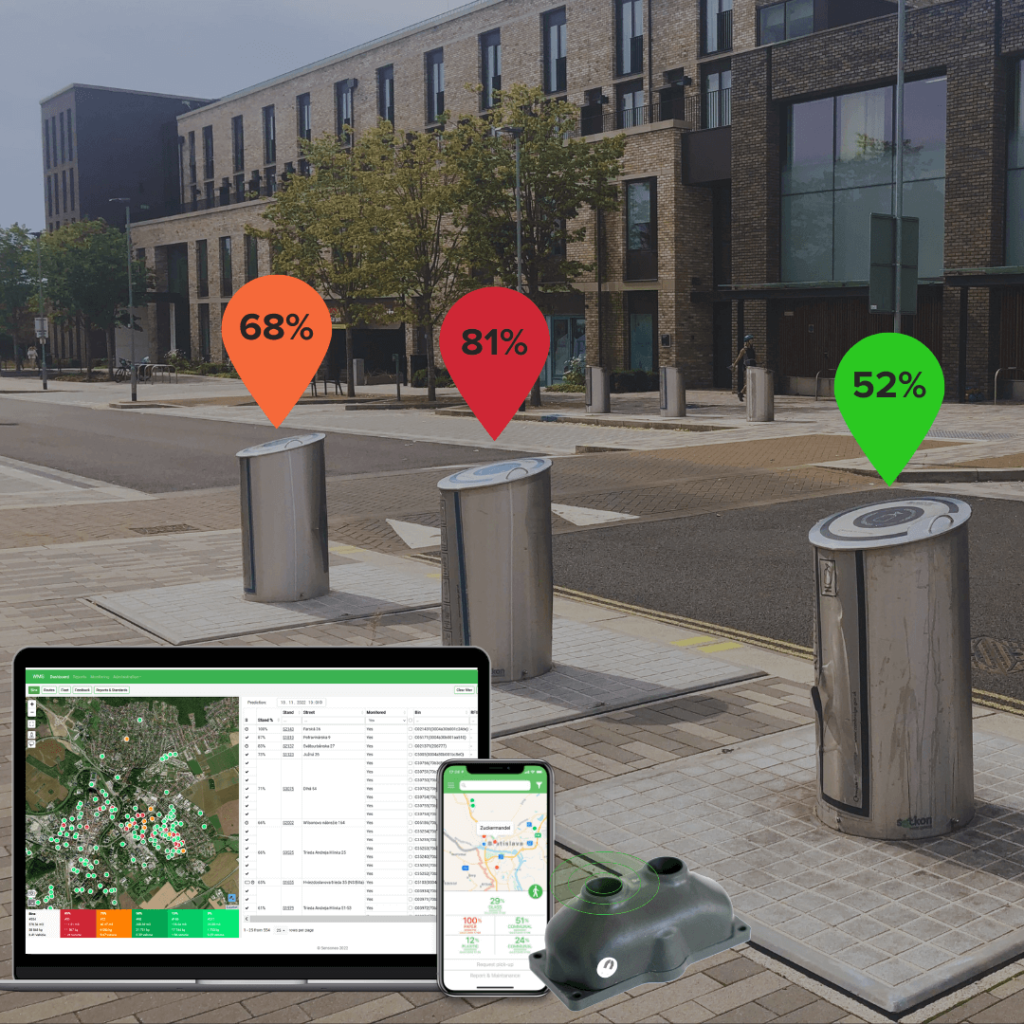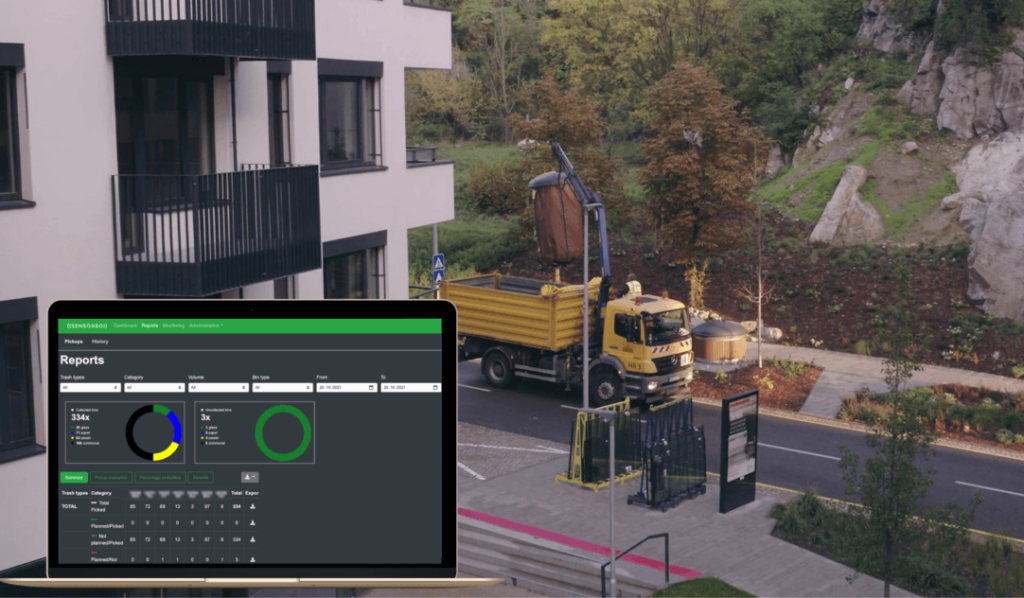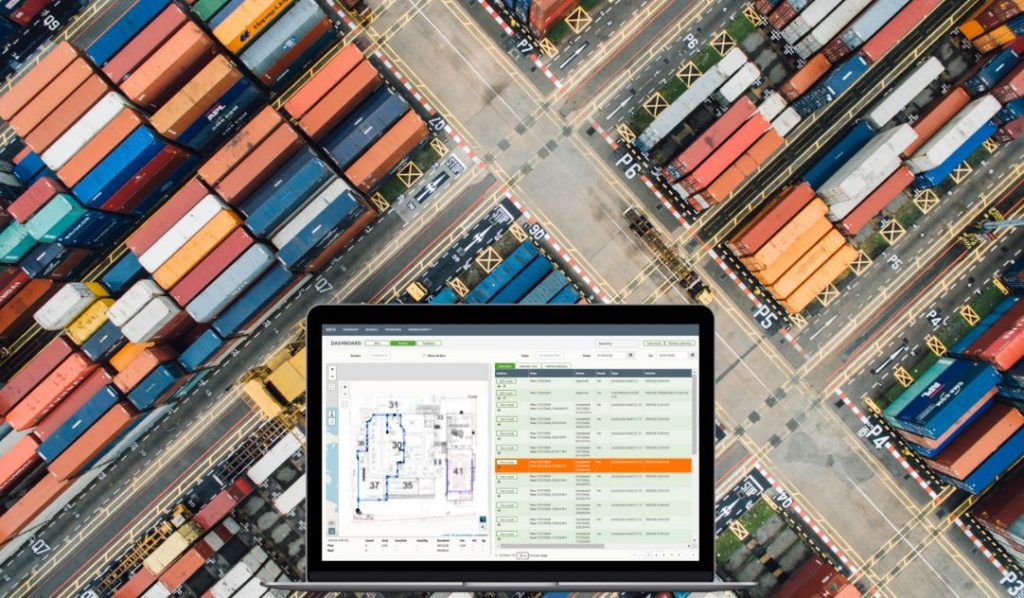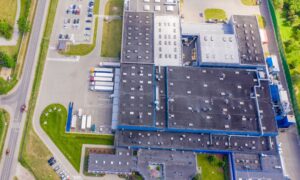As businesses become more environmentally conscious and seek ways to reduce their impact on the environment, smart waste management systems have become an increasingly popular solution. This is relevant not only to businesses active in the waste management sector like waste collection companies but also to big brands with large factories, production plants, and manufacturing sites that need to ensure a smooth flow of operations and eliminate disruptions by waste collection. Smart waste management systems offer a range of benefits, from improving efficiency and cutting costs to enhancing sustainability. Thanks to the amount of data collected by these systems, businesses can make educated and data-driven decisions to avoid operating in a traditional old-school way. In this blog post, we’ll explore why businesses are turning to integrated smart waste management systems and the advantages that these systems offer.

Smart Waste Management: What Is It?
Smart waste management involves the use of advanced technology to optimize waste collection, transportation, and disposal. It leverages fill-level sensors, data analytics, and automation to make waste management more efficient, effective, and sustainable. By incorporating smart technology into waste management systems, businesses can monitor waste levels, identify opportunities for routes optimization, and improve the overall efficiency of their waste management processes.

Why Are Businesses Turning to Smart Waste Management Systems?
Efficiency and Productivity
Smart waste management systems can improve efficiency and productivity by streamlining waste collection, transportation, and disposal processes. With the help of sensors and data analytics, businesses can identify the optimal time for waste collection, track waste levels, and schedule pickups accordingly. This reduces the time and resources required for waste management, allowing businesses to focus on their core operations and increase productivity. In case of waste collectors, savings on FTEs may even enable them to enhance their portfolio of clients.
Cost Savings
Smart waste management systems can also lead to cost savings by reducing waste disposal expenses and optimizing waste management processes. By monitoring waste levels and identifying opportunities for dynamic collection, businesses can optimize their waste collection and transportation processes. This way, businesses can reduce the number of trips required for waste pickup, saving on fuel and labor costs. For waste collection companies with large fleets, this can mean massive savings at the end of the year, as the fuel consumption of big waste vehicles is really high and every saved kilometer during the route can result in overall cost reduction. On the other hand, factories and manufacturing sites benefit from the smooth operation, as the waste collection car does not drive unnecessary routes and does not block the floorplan and disrupt the production.

Sustainability
As more businesses focus on sustainability and reducing their environmental impact, smart waste management systems have become an increasingly popular solution. These systems can help businesses reduce their carbon footprint by fighting contamination thanks to reporting of the contaminated bins in the smart waste management system. This can lead to the education and training for the employees about proper sorting. This measure aims on improving of waste diversion rates, and increasing of recycling and overall sustainability KPIs. By implementing smart waste management practices, businesses can demonstrate their commitment to sustainability and enhance their reputation as responsible corporate citizens.
Compliance
Regulatory compliance is a major concern for businesses, particularly those operating in industries with strict environmental regulations. Smart waste management systems can help businesses comply with regulatory requirements by providing accurate data on waste generation and disposal. This data can be used to demonstrate compliance with environmental regulations and avoid costly fines and penalties.

Integrated smart waste management systems offer a range of benefits for businesses, from improving efficiency and productivity to reducing costs and enhancing sustainability. By leveraging advanced technology to optimize waste management processes, businesses can streamline their operations and demonstrate their commitment to sustainability. With the growing focus on environmental responsibility, smart waste management systems have become an essential tool for businesses looking to enhance their bottom line while minimizing their impact on the environment.



